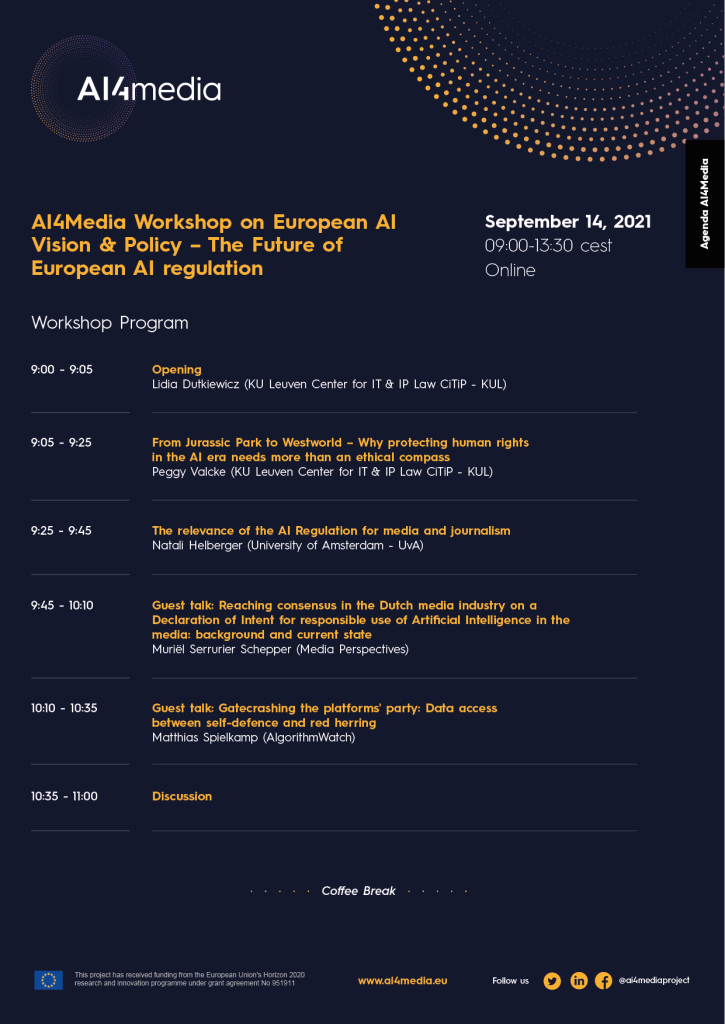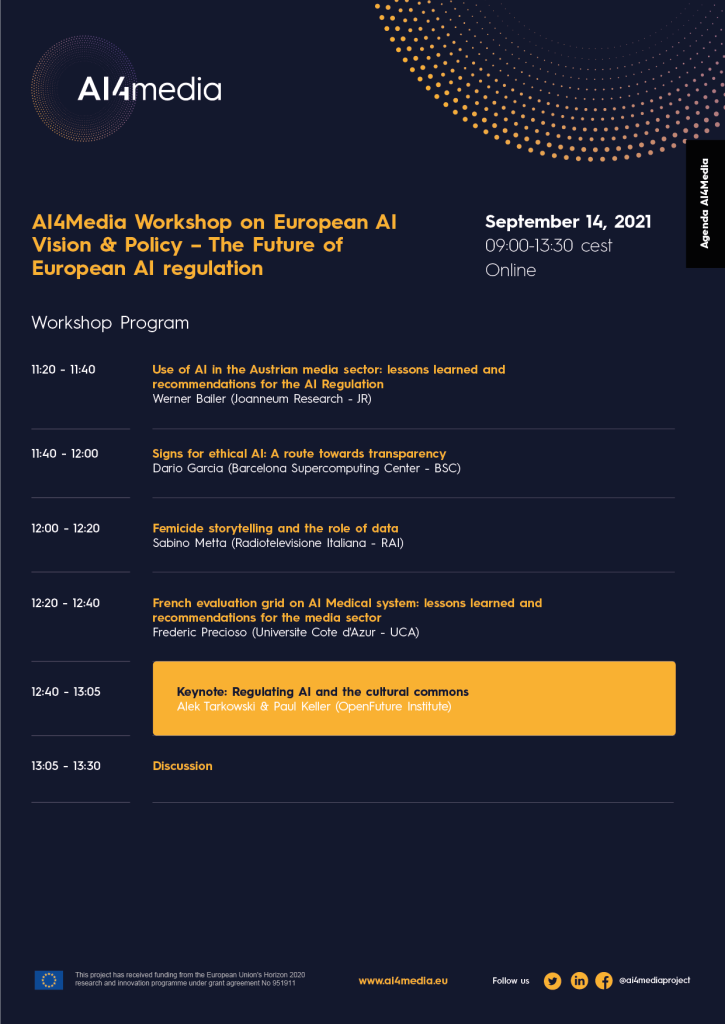AI4Media’s workshop on “European AI Vision & Policy – The Future of European AI regulation”
AI4Media’s workshop on “European AI Vision & Policy – The Future of European AI regulation” took place on September 14th, 2021 via webex.
The objective of the workshop was to present the recent research advances achieved in the AI4Media project on this domain, allowing a better understanding of the legal, political and societal challenges faced by the media sector. Ultimately, the goal was to contribute to the ongoing debate on the policy recommendations in the field of media and AI regulation.
The workshop addressed the following topics:
- the latest European developments in the field of AI regulation, e.g. the European Commission’s Proposal for a Regulation on Artificial Intelligence (Artificial Intelligence Act);
- the relevance of the AI Act for media and journalism;
- the use of AI in the media sector: lessons learned and recommendations from Austrian and French case studies;
- the role of data for academic research;
- responsible and ethical use of AI in the media sector.
In addition, two invited speakers addressed these complementary topics:
- Muriël Serrurier Schepper from Media Perspectives gave a guest talk on “Reaching consensus in the Dutch media industry on a Declaration of Intent for responsible use of Artificial Intelligence in the media: background and current state” where she will present the insights from the Dutch case study on the use of AI in the Media sector
- Matthias Spielkamp from AlgorithmWatch gave a guest talk on “Gatecrashing the platforms’ party: Data access between self-defence and red herring” where he will address the key topic of accessibility of online platforms’ data for academic research.
Last but not least, the workshop ended with the keynote by Prof. Paul Keller and Dr. Alek Tarkowski from the OpenFuture Institute, who gave a presentation on “Regulating AI and the cultural commons” tackling the issue of the use of openly licensed photos and datasets for AI training.
Workshop recording
AGENDA



